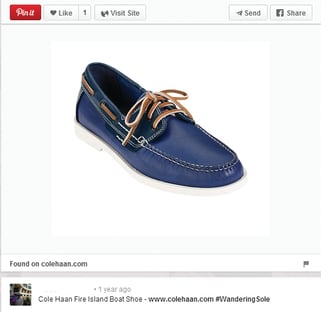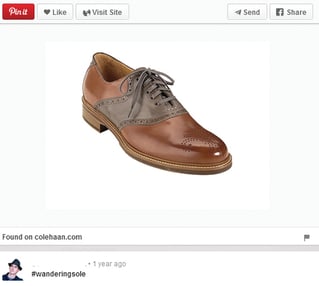Rolling the Dice: Social Promotion Disclosures

By Michael Kelber and Kate Dennis Nye
Social media's rapid rise to ubiquity has led brand owners to leverage networks like Facebook, Twitter, Vine, Instagram and Pinterest to market and promote their brands.
Notably, social media has significantly lowered the barriers to running sweepstakes or contests, and more brands are using these promotions more often, despite the fact that the regulatory and legislative guidance governing these promotions has been murky.
Most brand owners are aware of state contest laws, which generally prohibit running an "illegal lottery." Lotteries are defined as having three elements: chance (entrants may or may not win), consideration (entrants pay money or give something else of value) and a prize. In order to avoid running afoul of these laws but still give away prizes, brands are faced with a choice: eliminate chance, whether by allowing everyone to win or by structuring the promotion as a contest of skill or eliminate consideration by offering a truly free method of entry. While lottery laws vary between states, a well-structured promotion that eliminates one of these two elements is generally legal across the U.S. Ambiguous T&Cs
Adding a layer of complexity in the social media context is the fact that these outlets have their own terms and conditions (or "brand guidelines") that govern a company's use of those platforms. Particularly for brands that would like to run a promotion spanning two or more social media sites, or even would like to cross-promote a promotion running solely on one site, the ambiguity in these terms and guidelines sometimes leave uncertain whether a proposed contest would fit within the rules.
Pinterest presents additional challenges as a platform for brand owners given that it functions by allowing users to "pin" a copy of what may be copyright-protected materials. The Pinterest brand guidelines prohibit a contest that would "require people to add Pins from a selection," including possibly the brand's own Pinterest page or website. However, allowing contest entrants to add pins from any site creates potential copyright risks for the brand in that it is arguably inducing users to make copies of what may be copyright-protected photos. One way in which those risks might be mitigated is to only allow entrants to pin photos from sites that include a specific "Pin it" button, on the theory that such a button is essentially an implied license to pin.
Additionally, the Federal Trade Commission (FTC) recently weighed in on the application of Section 5 of the Federal Trade Commission Act to contests on social media. Section 5 requires disclosure of any "material connection" between an endorser and the advertised product where consumers might reasonably not expect that connection. Both the advertisers and the endorsers may be liable for failing to disclose a material connection.
For example, in a 30-second television advertisement, consumers reasonably expect that the celebrity featured is probably being paid by the brand. But, if a blogger recommends a product, consumers might not know whether he or she has been paid or otherwise incentivized to endorse it, and therefore must be disclosed.
Same Rules, New Platforms
The FTC has regularly said that the rules regarding disclosure of endorsements haven't changed-advertisements must be truthful and non-deceptive, regardless of form-but it has been aggressive in its application of Section 5 in the online context.
Recently, the FTC has issued its first official position on a Pinterest promotion. The FTC was concerned that a Cole Haan contest in which users were asked to pin images of Cole Haan products with the hashtag #WanderingSole (see images), in exchange for a chance to win a $1,000 shopping spree may have violated Section 5, because the pins were endorsements of the products, and the #WanderingSole hashtag failed to adequately communicate the fact that the contest entrants were incentivized to endorse them by the shopping spree sweepstakes.


The FTC decided not to pursue enforcement action because it had never before addressed the question of whether entry into a contest is a material connection between the advertiser and endorser that triggers a disclosure obligation, nor had it addressed whether a pin on Pinterest constitutes an endorsement.
Many brands had appropriately anticipated the latter point - paid endorsers of their products on Pinterest should be disclosing that relationship as they would on Facebook, Twitter or other platforms. The FTC guidelines were updated in 2013 to be more explicit about disclosures on Twitter and other character-limited spaces (which, presumably, would include Pinterest). These revised guidelines specify that disclosures, even in these space-limited formats, need to be in "understandable language."
Establishing a Connection
The more interesting take away from the Cole Haan Wandering Sole promotion is that in the eyes of the FTC, entering a contest is a "material connection" between the entrant and the brand which requires disclosure. From the FTC's perspective, the relevant question is: what would the consumer want to know about why this material has been posted?
If a friend posts a photo of a pair of shoes with a caption that the shoes are great, it would be relevant to the viewer if the poster got the shoes for free, was paid to post that, works for the brand or, according to the FTC, whether the friend is making the post as a condition of entering a contest.
From a brand owner's perspective, this means that extreme caution will be necessary in structuring social media contests and promotions going forward. Any contest that requires posting of content to a blog or social media site should be designated as a contest entry, whether by hashtag or other disclosure method. Thus, the official rules of the relevant contest should require that, in order to be a valid entry, such a disclosure needs to be made in whatever format the brand specifies.
To take the Cole Haan example, if they had required #WanderingSole and #sweepstakes or #WanderingSoleContest on each Pin in order to enter, they may have escaped the FTC's scrutiny.
The Gamble
Given that so many consumers have embraced social media whole-heartedly, and their ranks continue to grow, it is inevitable that companies will likewise gravitate to social media platforms to promote their brands. However, these companies are faced with a shifting and complex landscape, and must take care to ensure that their promotions comply with the patchwork of requirements formed by state sweepstakes laws, copyright law, social media platform guidelines (if any) and the FTC Act.
About the Authors: Michael Kelber and Kate Dennis Nye are intellectual property attorneys in the Advertising, Marketing and Social Media Group at Neal, Gerber & Eisenberg LLP (Chicago).

Subscribe to Our Newsletter!
Latest in Social Media










